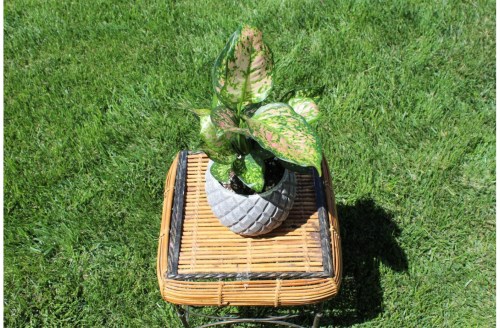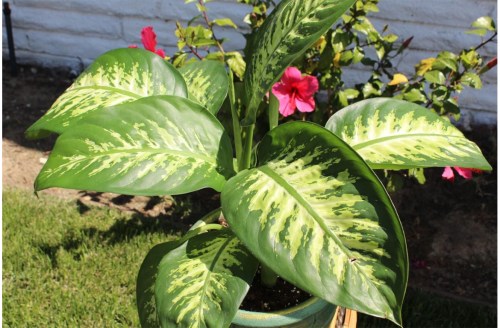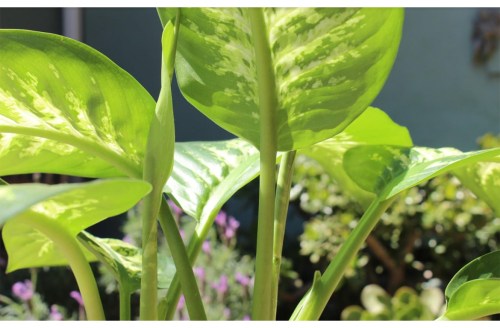“Owning plants is a pretty simple and effective way of learning some tools for how to be our best selves,” says Sanam Hafeez, PsyD, a New York City-based neuropsychologist. Think about it: If you grow plants, you know that no two are the same. Some like bright light and others prefer less; some need to be watered every two days, while others prefer two weeks between watering sessions.
Experts in This Article
Haley Neidich is a psychotherapist with over 10 years of experience.
neuropsychologist and founder of Comprehend the Mind
As is true of plants, each of our interpersonal relationships requires different levels of attention. My best friend and I can go weeks without talking, sometimes even forgetting to text each other back, and there are never any hard feelings. On the other hand, my sister and I live together, so it’d be strange if I went even a few days without speaking to her.
In my yearlong plant parenthood, I’ve learned four things about caring for these living things. Applying these lessons to my interpersonal relationships has helped me become a better daughter, sister, and friend.
Here are four rules for plants—and relationships, too
 1. Observation is key
1. Observation is key
The appearance of your plant is highly indicative of how it’s doing overall. Is it dry, burnt, yellow, or droopy? In most cases, burnt and dry leaves are signs of too much sun, while yellow and/or droopy leaves tend to indicate overwatering.
“Plants offer an opportunity to practice mindfulness,” says psychotherapist Haley Neidich, LCSW. “Caring for them is simple when you pay attention.” The same is true with humans. I observe the relationships I have with my people: When’s the last time that I checked on this person? How did they seem then? Whenever I sense that something’s off, I check in.

2. Abide by the Platinum Rule, not the Golden Rule
We learn the Golden Rule as children. (“Treat others the way you want to be treated,” if you need a refresher.) What we really should’ve been taught, though, was the Platinum Rule: “Treat others the way they want to be treated.”
A few months ago, I saw a TikTok video about bottom-watering, which allows for the roots to take only what they need — but it’s not meant for all plants. (Dang TikTok!) When I tried this with a gorgeous Lady Valentine from Los Angeles’s Latinx with Plants, the bottom leaves turned yellow. As it turns out, Lady Valentines don’t like to be bottom-watered.
Now that I’m more experienced with plants, I know to research proper care for each before I get them. I can’t assume to know what a plant (or a person) likes or doesn’t like. I look up what each plant needs to thrive. Luckily, this is also easy to do with our personal relationships. All you have to do is ask.

3. Be patient.
I’ve overwatered my plants and scorched their leaves more times than I care to admit. What I will admit is that these both directly resulted from my lack of patience. (Sorry, plants!)
A general rule is to wait for the natural course of things, which usually is about a week with plants. You can’t forcibly accelerate the growth of anything (or anyone). New leaves grow slowly, like some relationships and some people do.
“[Caring for plants] helps you be less selfish and more giving of your time and resources to other people in your life, thereby nurturing those relationships,” Dr. Hafeez says. Now that I’m trying to be as patient with people as I am with plants, I’m pleasantly surprised by their natural growth.

4. Sometimes, plants die — as do relationships.
Almost certainly, we all think in romantic terms when we hear “relationship,” but that’s not the only type of relationship humans have. We have familial relationships, platonic relationships, and professional relationships, to name a few.
I recently went on a four-week road trip and upon return, learned that a few of my plants died. Not going to lie, I was distraught—but I ultimately accepted that plants sometimes die.
Similarly, not all relationships will last forever. Friends move away, we quit old jobs and get new ones, and people break up.
“The growth and cycle of plants are very reminiscent of the different stages of our own lives, including relationships,” said Dr. Hafeez. “Watching a plant shed leaves and grow again can be very inspiring to someone who is trying to let go of toxic relationships or ‘turn over a new leaf.’” (Good one, Dr. Hafeez.)
I’m happy to let the relationships I have with my plants shed light on how I can have better relationships with people. After all, they both need to be taken care of just the same.
Oh hi! You look like someone who loves free workouts, discounts for cult-fave wellness brands, and exclusive Well+Good content. Sign up for Well+, our online community of wellness insiders, and unlock your rewards instantly.
Sign Up for Our Daily Newsletter
Get all the latest in wellness, trends, food, fitness, beauty, and more delivered right to your inbox.
Got it, you've been added to our email list.











